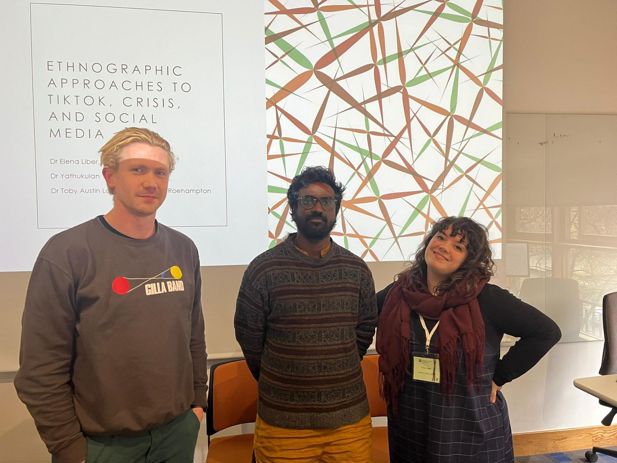TikTok, Self-making and algorithmic relations
- Location
- registration required, Webinar - online
- Dates
- Wednesday 18 September 2024 (13:00-14:00)
 TikTok Ethnography Collective
TikTok Ethnography Collective
TikTok shot to prominence during the pandemic and government lockdowns across the world. As people were increasingly unable to exercise the forms of sociality and relationality that they had been accustomed to, they found new ways of establishing connections. Along with similarly structured social media platforms, such as Douyin, TikTok has drawn attention from scholars and commentors across academic and professional spheres. In particular, the personalised content recommendation algorithms or For You Page has raised many questions concerning selfhood, identity and belonging in a rapidly changing digital age. In the context of health, much concern has been raised regarding the impact of such content recommendation systems, and the popularity of TikTok, in relation to self-diagnosis, service over-utilisation and misinformation, linking into debates concerning ‘cyberchondria’ in public health literature. Equally however, many users of TikTok report finding a powerful sense of community and belonging on the platform, and describe how they have been able access to health information at a time when state funded healthcare is unable to meet their needs. In this presentation, we will discuss the ethnographic work which each of us have engaged in over the last four years to illustrate the various faces of TikTok in relation to health-related content.
Registration in advance is required: Register to attend
About the Speakers
The TikTok Ethnography Collective was founded in 2020 by Elena Liber and Yathukulan Yogarajah and grew to become an international network of students, lecturers, researchers, anthropologists and artists using ethnographic methods to explore the digital world. In 2022 Toby Austin Locke joined the collective as Lead Researcher. Elena's work focuses on the narration of conflict on TikTok; Yathukulan examines cryptocurrency and finance content, as well as algorithmic relations more broadly; and Toby researches the relationships between ADHD, neurodiversity and digital technologies.
This Webinar is free to attend and is open to all, both within and outside the University. Registration in advance is required.
